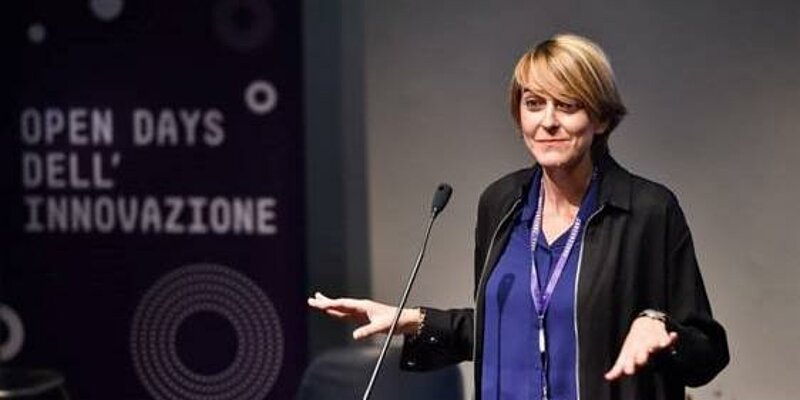
Since completing her Executive MPA in 2014, social entrepreneur Carolina Rius founded a new business in Cambodia.
The price of rice has fallen dramatically in recent years, curtailing the earnings of many farmers in poor regions of the world. With no alternative source of revenue, many people move from rural areas to cities in hopes of finding work, sometimes for an even more tenuous livelihood. Carolina Rius, a social entrepreneur who completed her Executive MPA in 2014, supports innovative businesses that serve the public good in places where people often struggle to make ends meet. In 2016, she founded a business that takes rice husk, which had until then gone to waste, and sells it for upcycling into other products.
Early in 2017, Rius and a partner were scouting around for a new social enterprise project. They had some specific criteria: “We wanted to work in a developing country, we wanted it to be an inclusive business, it should be in a rural area, not urban, and we wanted to upcycle something they already had – and we wanted it to have a social and environmental impact.”
Three-quarters of the world's poor live in rural areas and work mainly in agriculture, with a billion people dependent on rice for their income. “Rice was a product that appealed to us for this reason,” Rius says. She discovered that around 20% of their harvest is made up of the by-product rice husk, with around 150 million tonnes cast aside every year. Rius’ business, HUSK VENTURES, transforms the bulk husk into a biomass fuel: rice husk pellets, a clean cooking fuel for households, restaurants and schools.
Rius already had considerable experience launching enterprises in South Asia. She started a trade consultancy, INQUVE, in India in 2007 and expanded the business to eight Southeast Asian markets. INQUVE has helped SMEs and social enterprises to scale up their business in these markets. For the new venture she met with farmers in Cambodia and then in Spain with public agencies already working on rice production. She also connected with international agencies and civil society groups already active in communities, and with government officials responsible for policies such as those promoting eco-fuels.
Governance plays a crucial role in benefitting the farmers, she says. “If profits remain in the cooperative, the farmers will have a vote on what to do with it. It’s very important to have a governance structure that allows sharing the profits with the farmers and their families, otherwise our business will not achieve the intended impact.”
In the second quarter of 2018, HUSK expects to start selling the pellets through a distribution network it set up in Phnom Penh. Right now, the venture is focused on Cambodia, but expansion to other Asian countries is possible.
“In social business normally you have to create a market and work to replace the behavior of consumers – like using rice pellets and clean cookstoves instead of firewood. It’s very hard for a single small enterprise to change that. You need a lot of stakeholders involved in this purpose,” she says.
-
Carolina Rius is co-founder of HUSK VENTURES and founder of INQUVE. She studied international trade and development economics at the Universidad Pompeu Fabra in Spain, the London School of Economics and University College, Dublin, before completing an Executive MPA at the Hertie School in 2014.

